#Supply Chain Automation
Explore tagged Tumblr posts
Text
Peran AI dalam Mempercepat Manajemen Rantai Pasokan
Manajemen rantai pasokan adalah tulang punggung operasional bisnis, yang mencakup pengelolaan aliran barang, informasi, dan keuangan dari pemasok ke konsumen. Dalam era globalisasi dan digitalisasi, tantangan dalam rantai pasokan semakin kompleks. Di sinilah kecerdasan buatan (AI) memainkan peran penting. AI tidak hanya memberikan efisiensi tetapi juga mempercepat berbagai aspek manajemen rantai…
#AI challenges#AI in logistics#AI in supply chain#artificial intelligence#blockchain integration#cost reduction#customer satisfaction#future of AI#inventory optimization#IoT in supply chain#logistics efficiency#predictive analytics#real-time data#supply chain automation#supply chain innovation#supply chain management#supply chain transparency#supply chain trends#sustainable supply chain#warehouse management
0 notes
Text
Transforming Warehouse Management: The Power of VLC Smart Warehouse Management App
Warehouse management is a critical component of supply chain operations, focusing on the organization and oversight of warehouse activities to ensure seamless functionality. This encompasses various tasks, including inventory arrangement, equipment maintenance, stock management, order fulfillment, and overall optimization of warehouse processes.
The Importance of Efficient Warehouse Management
Efficient warehouse management directly impacts the operational success of distributors, e-commerce retailers, and manufacturers. Businesses can enhance productivity, reduce errors, and improve customer satisfaction by optimizing these processes. Automation tools have become essential, with applications like the VLC Smart Warehouse Management App for Business Central leading the way.
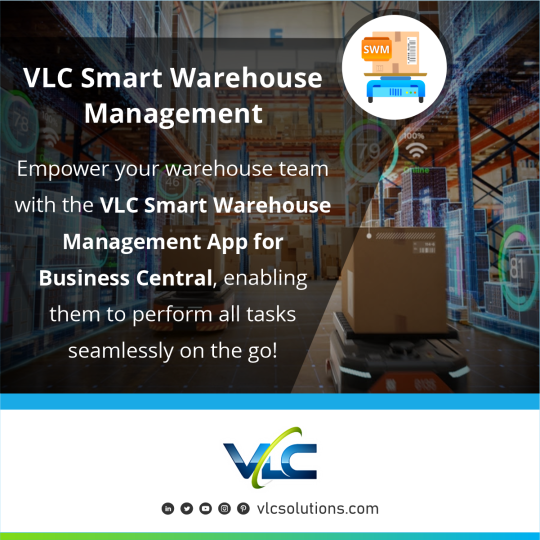
Introducing VLC Smart Warehouse Management App
The VLC Smart Warehouse Management App is designed to empower warehouse personnel by enabling them to perform all necessary tasks on mobile devices. This mobility eliminates the need for constant trips to workstations, thereby increasing efficiency and productivity. The app's integration with Microsoft Power Platform enhances its capabilities, allowing for a more streamlined approach to warehouse management.
Key Features of VLC Smart Warehouse Management
Custom User Profiles: The app allows for the creation of tailored profiles for each user based on their specific roles within the warehouse. This customization ensures that users have access to the functions they need without unnecessary clutter.
Comprehensive Operations: Users can manage all necessary warehouse operations, including receipts, put-aways, movements, picks, shipments, and physical inventory. This comprehensive functionality is crucial for maintaining an organized and efficient warehouse.
Barcode Scanning: One of the standout features is the ability to perform operations with just a few barcode scans. This significantly reduces manual entry errors and speeds up processes from receiving goods to shipping orders.
Accessible Inventory Details: The app provides easy access to inventory details and bin contents across various activity screens. This accessibility is vital for quick decision-making and efficient stock management.
Document Management: Users can add receipt copies and images for items directly from the app, enhancing documentation practices and ensuring that all relevant information is readily available.
Text/Speech Functionality: The inclusion of text and speech functionality allows users to search for inventory items quickly and efficiently. This feature caters to diverse user preferences and enhances usability.
Movement/Physical Inventory Journals: The app supports user-specific movement and physical inventory journals, allowing for better tracking and assignment of documents.
Multi-location Support: VLC Smart Warehouse Management works seamlessly across various locations, which is essential for businesses operating multiple warehouses or distribution centers.
Benefits of Automation in Warehouse Management
Implementing automation tools like the VLC Smart Warehouse Management App can lead to significant benefits:
Increased Accuracy: By minimizing manual entries through barcode scanning and automated processes, businesses can achieve higher accuracy in inventory management.
Enhanced Productivity: Mobile access allows warehouse staff to complete tasks more quickly and efficiently.
Better Inventory Control: Real-time tracking and easy access to inventory data enable better decision-making regarding stock levels and order fulfillment.
Streamlined Operations: Automation reduces bottlenecks in processes such as receiving and shipping, leading to faster turnaround times.
Conclusion
In summary, effective warehouse management is essential for optimizing supply chain operations. The VLC Smart Warehouse Management App offers a robust solution that empowers users through mobile technology while enhancing accuracy and efficiency in warehouse activities. By leveraging such automation tools, businesses can significantly improve their operational performance and customer satisfaction levels. As the logistics landscape continues to evolve, adopting advanced solutions like VLC will be crucial for staying competitive in the market.
#Warehouse Management#Supply Chain Automation#Inventory Control#Mobile Technology#E-commerce Solutions
0 notes
Text

In today’s fast-paced business world, efficiency is key. Are you still relying on email for your business data exchange? It’s time to consider the power of Electronic Data Interchange (EDI) and take your operations to the next level!
EDI vs. Email: The Business Case for Automated Data Exchange
0 notes
Text
0 notes
Text
Supply Chain Automation: Navigating Uncertainty with Efficiency
Choose the right supply chain automation for resilience and success in uncertain times. Learn how companies can cope with disruptions and ensure efficient business processes.
The COVID-19 pandemic has been an eye-opener for businesses worldwide, revealing vulnerabilities in supply chains across industries. From pharmaceuticals to manufacturing, companies faced unprecedented challenges, leading to delays in delivering goods and services to consumers. However, this pandemic is just one among several factors contributing to supply chain disruptions in recent years. Geopolitical conflicts, labor shortages, natural disasters, and other unforeseen events continue to pose significant threats to supply chain stability.
To overcome these challenges and maintain a competitive edge, companies are increasingly turning to supply chain automation. By integrating automation tools and technologies, businesses gain the ability to respond swiftly to rapid changes and uncertainties, ensuring the seamless flow of products and services. Let's delve into the significance of supply chain automation and how it helps businesses stay resilient amidst volatility.
What is Automation in Supply Chain?
Supply chain automation refers to the strategic implementation of technology and software to streamline and optimize various aspects of the supply chain process. It involves the use of robotics, artificial intelligence (AI), machine learning, and data analytics to enhance efficiency, reduce costs, and minimize human error.
The Benefits of Supply Chain Automation
1. Real-time Visibility:
Automation provides real-time visibility into the entire supply chain, enabling businesses to monitor inventory levels, track shipments, and identify potential disruptions proactively. With this level of transparency, companies can make data-driven decisions and implement corrective actions swiftly.
2. Forecasting Accuracy:
AI and machine learning algorithms help improve demand forecasting accuracy by analyzing historical data and market trends. Accurate predictions enable businesses to plan production and inventory management more efficiently, reducing the risk of overstocking or stockouts.
3. Enhanced Agility:
Automation empowers supply chains with flexibility and adaptability. In times of sudden disruptions, such as natural disasters or unexpected demand surges, automated systems can quickly adjust production schedules and reroute shipments, ensuring minimal disruptions.
4. Optimized Inventory Management:
Automation tools optimize inventory management by identifying slow-moving items and maintaining optimal stock levels. This prevents excess inventory costs while ensuring products are available when needed.
5. Improved Efficiency and Productivity:
By automating repetitive and time-consuming tasks, supply chain automation frees up human resources to focus on more critical and strategic aspects of the business. This leads to improved overall efficiency and productivity.
6. Risk Mitigation:
Automation reduces the dependency on manual processes, minimizing the chances of errors and discrepancies. This, in turn, reduces the risk of compliance violations, financial losses, and reputational damage.
The Road to Resilience:
Implementing supply chain automation requires a comprehensive strategy and a willingness to embrace transformative technologies. Here are some steps companies can take to embark on the road to resilience:
1. Assessment: Conduct a thorough assessment of existing supply chain processes and identify areas that can benefit from automation. This may include inventory management, demand forecasting, order processing, and logistics.
2.Investment in Technology: Invest in advanced automation technologies that align with your business goals and requirements. Collaborative robots, AI-driven demand planning software, and blockchain-based supply chain platforms are some examples of cutting-edge automation tools.
3. Data Integration: Ensure seamless integration of data across different supply chain functions and systems. This integration enables a holistic view of operations and facilitates data-driven decision-making.
4.Training and Skill Development: Provide adequate training to employees to effectively operate and manage automated systems. Upskilling the workforce will enhance their capabilities and ensure a smooth transition into the automated supply chain environment.
5.Continuous Improvement: Supply chain automation is an ongoing journey. Continuously monitor and evaluate the performance of automated processes, identifying areas for improvement and refinement.
Embrace the Future with Supply Chain Automation:
The future of supply chain management lies in embracing automation. As uncertainties continue to arise in an ever-changing world, businesses that invest in advanced technologies will gain a competitive edge. Supply chain automation not only strengthens resilience but also drives efficiency, cost savings, and customer satisfaction.
In conclusion,
The COVID-19 pandemic has undoubtedly accelerated the need for agile and adaptable supply chains. Companies must view supply chain automation as a strategic imperative to thrive in a world where disruptions are becoming the norm. By adopting automation technologies, businesses can navigate uncertainties with confidence, keeping their products and services moving in the face of any challenge.
0 notes
Link
Do you want to streamline your supply chain and logistics operations? Do you also want to harness the power of automation and race towards success? 🚚
Well, look no further!
#supply chain and logistics automation#supply chain automation#supply chain automation system#supply chain automation benefit for businesses#personalized supply chain automation plan
0 notes
Text
As we look ahead to 2023, it's important to consider how to prepare your supply chain for the challenges and opportunities that lie ahead. SCAI, or Supply Chain Artificial Intelligence, is a powerful tool that can help optimize your supply chain and maximize efficiency. It uses advanced algorithms and machine learning to analyze data and provide insights to help make informed decisions. With SCAI, you can reduce costs, improve delivery times, and stay ahead of the competition.
SCAI predicts future trends and challenges, allowing you to address potential issues before they become problems. It also offers collaboration tools to improve communication and collaboration with suppliers, customers, and other partners. Whether you're looking to reduce costs, improve delivery times, or expand your business, SCAI can provide the insights and tools needed to succeed.
Don't wait - start maximizing your supply chain efficiency today with SCAI!
#SCAI#2023 supply chain#supply chain trends#supply chain automation#supply chain sustainability trends#supply chain management modules
0 notes
Text


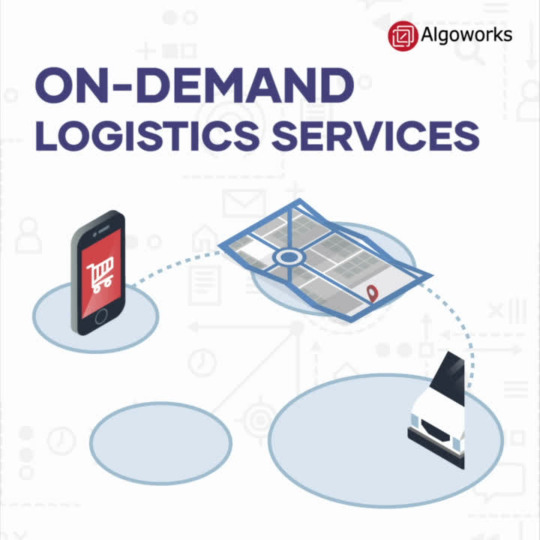


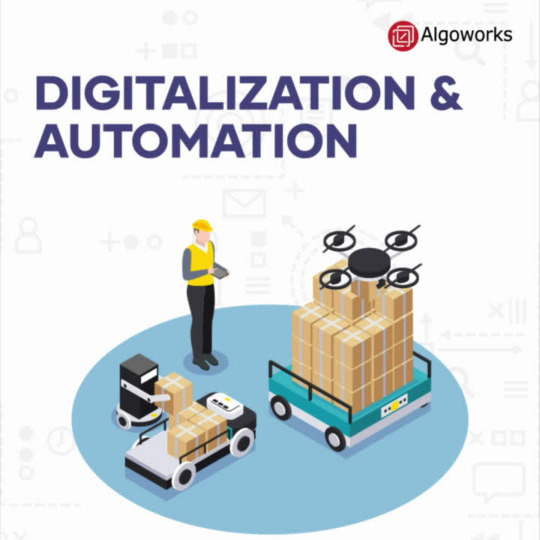
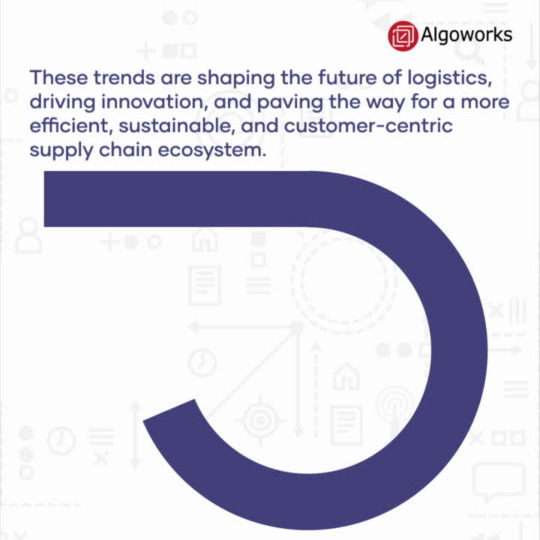
Discovering the Future of Logistics: 5 Influential Trends! 🚛 Explore the factors driving the evolution of the industry, from automation to sustainability.
Stay informed and gain insights into the future of supply chain management.
2 notes
·
View notes
Text

#city planning#functional supply chains#urban farming#urban beautification#public fruit trees#fully automated luxury communism
9 notes
·
View notes
Photo

#this is what i believe in#sorta related i was reading an article a few weeks ago#where they discussed the idea of using dirigible drones to load and unload cargo ships off the coast#instead of waiting for them to enter port#at least partly#i just love airships and i'm hoping they make a comeback#also on a related note i'm just really excited to see how automation/robotics changes logistics#things are about to get really efficient#logistics have largely been the same for like a century#we're about to witness a supply chain revolution#and at all levels of the supply chain#just imagine#autonomous cargo ships unloading at autonomous ports#ships waiting in line are unloaded by drones#then fleets of autonomous trucks#and revitalized trains#then smaller drones to directly deliver packages from stores/warehouses to consumers
6 notes
·
View notes
Text
#supplychain#automation#supply chain#sustainability#transportation#supply chain management#efficiency
0 notes
Text

How AI is Revolutionizing the Food Industry with Automation?
AI is revolutionizing the food industry with automation by streamlining operations, improving food quality, and enhancing customer experiences. From predictive analytics for inventory management to AI-powered cooking and delivery systems, automation is driving efficiency. With AI, food companies can better forecast demand, personalize services, and optimize supply chains. USM Business Systems specializes in AI-driven solutions that help businesses in the food sector stay ahead in this rapidly evolving market.
#AI in food industry#Food automation technology#AI-driven food solutions#Automation in food apps#Artificial intelligence food#AI for food production#Food industry automation#AI food delivery solutions#AI in food processing#Smart food industry AI#Automation in restaurants#AI in food supply chain#Food industry efficiency#AI-powered food services#AI-driven restaurant tech
1 note
·
View note
Text
Automatisasi Bisnis dengan Kekuatan AI
Automatisasi bisnis telah menjadi topik utama dalam dunia usaha modern. Dengan kemajuan teknologi kecerdasan buatan (AI), perusahaan kini memiliki peluang untuk mengoptimalkan proses mereka, meningkatkan efisiensi, dan mengurangi biaya operasional. AI tidak hanya menggantikan tugas-tugas manual yang berulang tetapi juga membawa kemampuan analisis data yang canggih, prediksi yang akurat, dan…
#AI automation#AI benefits#AI challenges#AI in banking#AI in business#AI in logistics#AI in retail#AI training#AI trends 2024#AI-powered tools#artificial intelligence#business automation#business innovation#cost reduction#customer experience#ethical AI#future of AI#operational efficiency#predictive analytics#scalable solutions#smart inventory management#supply chain management#workforce automation
0 notes
Text
Packaging Automation Solutions: A Game-Changer for Modern Businesses
Automation is no longer just a buzzword; it’s the lifeblood of industries striving for efficiency and innovation. In the world of packaging, packaging automation solutions are transforming how businesses operate. From small startups to multinational giants, everyone is tapping into the power of automation to streamline processes and boost productivity. Let’s explore what makes these solutions so impactful, and yes, we’ll keep it engaging—because automation doesn’t have to be boring!
What Are Packaging Automation Solutions?
Packaging automation solutions encompass advanced technologies and systems designed to handle various packaging tasks—think filling, sealing, labeling, and palletizing—with minimal human intervention. These solutions use robotics, sensors, and software to deliver precision, speed, and reliability in packaging operations.
Gone are the days of endless manual labor on assembly lines. With packaging automation solutions, businesses can achieve more in less time, ensuring consistent quality while reducing costs.
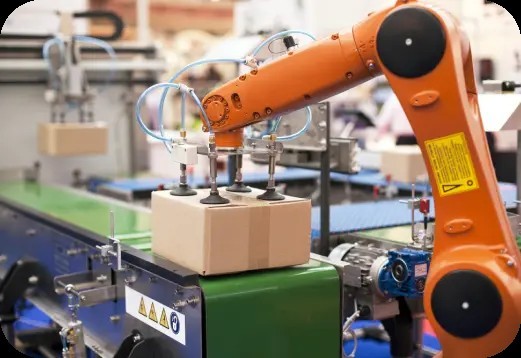
Why Should Businesses Invest in Packaging Automation Solutions?
Let’s break it down:
Speed: Imagine meeting tight deadlines without breaking a sweat.
Accuracy: Say goodbye to crooked labels and messy seals.
Cost Savings: Less waste and reduced labor costs mean a better bottom line.
Scalability: Whether it’s 100 units or 10,000, automation adapts to your needs.
Happier Teams: Employees can focus on creative, meaningful tasks instead of repetitive grunt work.
The Benefits of Packaging Automation Solutions
1. Supercharged Productivity
With packaging automation solutions, what used to take hours can now be done in minutes. Machines don’t take breaks, and they certainly don’t call in sick. This consistent output ensures you meet production goals, even during peak demand periods.
2. Impeccable Quality Control
Human error is inevitable, but machines? They’re built for precision. Whether it’s filling bottles to the exact milliliter or applying labels perfectly every time, automation ensures your products look and perform their best.
3. Cost Efficiency
While the initial investment might seem steep, the long-term savings are worth it. Automation minimizes waste, optimizes material use, and reduces the need for manual labor. Over time, these savings add up significantly.
4. Enhanced Worker Safety
Let’s face it—packaging tasks can be repetitive and even hazardous. Packaging automation solutions take over the physically demanding jobs, reducing workplace injuries and keeping your team safe.
5. Eco-Friendly Operations
Modern automation systems are designed with sustainability in mind. They optimize resource use, reduce waste, and often integrate with green energy solutions, helping your business stay environmentally responsible.
How Do Packaging Automation Solutions Work?
Step 1: Feeding and Organizing
Products are fed into the system using conveyors and robotic arms. These machines organize and sort items, ensuring a smooth flow through the packaging line.
Step 2: Filling and Sealing
Automated systems precisely measure and fill products into containers, be it liquids, powders, or solids. Once filled, the packages are sealed—tight, secure, and ready to move on.
Step 3: Labeling and Coding
Labels are applied flawlessly, and any necessary information—like barcodes, batch numbers, or expiry dates—is printed with laser-sharp clarity.
Step 4: Quality Checks
AI-powered cameras and sensors inspect every package to ensure it meets quality standards. Defective products are flagged and removed from the line.
Step 5: Palletizing and Shipping
Finally, robotic arms stack the packaged goods onto pallets, optimizing them for storage or transport. Some systems even integrate with logistics software for seamless shipping.
Real-World Success Stories
Case Study 1: A Craft Brewery’s Leap to Automation
A small craft brewery struggling with demand spikes turned to packaging automation solutions. The result? Their production tripled, labor costs halved, and they finally had time to focus on brewing award-winning beers.
Case Study 2: A Global Retailer’s Packaging Overhaul
A retail giant adopted fully automated packaging systems across their distribution centers. Not only did this cut processing times by 60%, but it also reduced packaging waste by 30%, aligning with their sustainability goals.
Challenges in Adopting Packaging Automation Solutions
Initial Costs
Let’s be honest—automation isn’t cheap. Investment if often important as long-term benefits often outweigh the initial expenses.
Skill Gaps
Operating and maintaining automated systems require skilled workers. Investing in training is crucial.
Integration
Adapting new systems to existing operations can be tricky. Partnering with experienced providers ensures a smoother transition.
The Future of Packaging Automation Solutions
The future is bright, and it’s automated! Innovations in AI, machine learning, and IoT are making packaging systems smarter and more adaptable. Picture this: machines that predict maintenance needs, adapt to new packaging designs on the fly, and optimize energy use—all while keeping your operations running smoothly.
Conclusion
Packaging automation solutions are the secret sauce for businesses aiming to stay competitive in today’s fast-paced world. They enhance efficiency, improve quality, and save costs—all while making operations safer and more sustainable. Whether you’re a small startup or a global powerhouse, automation can revolutionize your packaging game. So, what are you waiting for? It’s time to let the robots take the reins—and maybe crack a joke or two along the way!
FAQs
1. What industries benefit the most from packaging automation solutions?
Virtually all industries—from food and beverages to pharmaceuticals, cosmetics, and e-commerce—can benefit from automation.
2. How long does it take to see ROI on automation?
Depending on the scale of implementation, most businesses see ROI within 1-3 years.
3. Is automation suitable for small businesses?
Absolutely! Scalable solutions mean even small businesses can adopt automation without breaking the bank.
4. Do automated systems require a lot of maintenance?
Regular maintenance is necessary but manageable, especially with modern systems designed for durability and self-diagnosis.
5. Can automation help with sustainability?
Yes! Many systems are designed to optimize resources and reduce waste, making your operations greener.
1 note
·
View note
Text
Automation In Supply Chains
Negosentro | Automation In Supply Chains | Automation is revolutionizing supply chain operations by introducing innovative technologies that enhance efficiency, improve accuracy, and bolster resilience. As businesses navigate the complexities of modern commerce, automation has become a cornerstone for managing supply chains effectively, with applications ranging from warehouse robotics to…
0 notes
Text
Warehouse Management Software London
Efficient Warehouse Management Software in London for Streamlined Operations
Discover how our cutting-edge Warehouse Management Software in London can streamline your operations, optimize inventory, and boost overall productivity. Perfect for small and large warehouses alike.
Warehouse Management Software London

0 notes